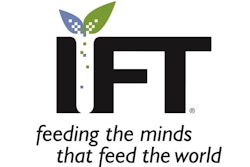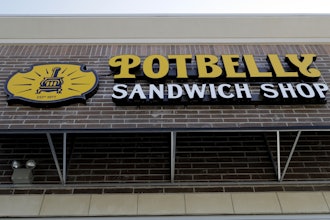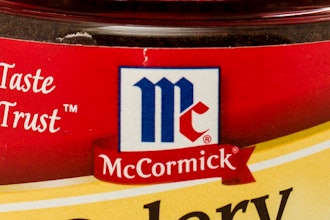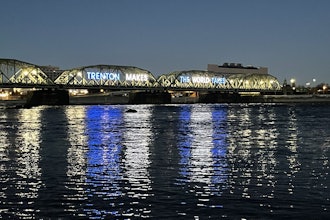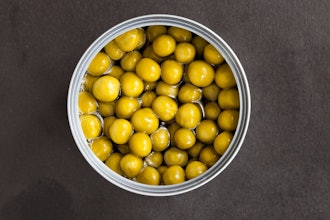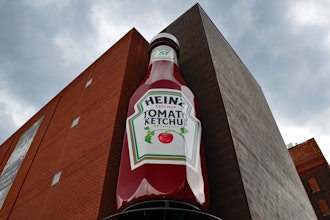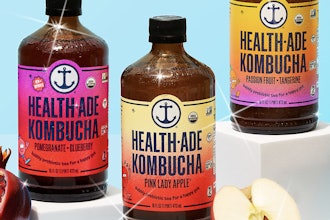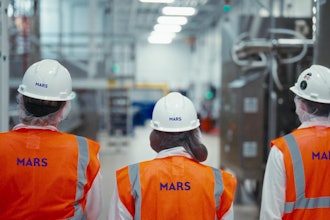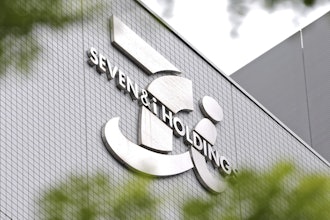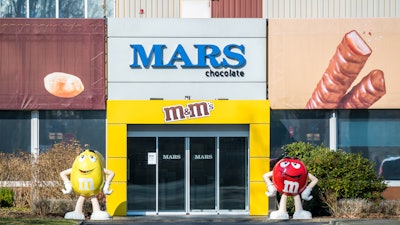
CHICAGO — As part of the Unreasonable Food collaboration, Mars and Unreasonable Group on Monday announced the inaugural cohort of companies positioned to re-define food systems.
Mars, in collaboration with Unreasonable Group, helped select 15 purpose-led, growth-stage ventures and their leaders for their potential to drive impact at scale across the food value chain. This next stage of the Unreasonable Food program will positively impact sustainability goals, including the Mars Net Zero Roadmap and 2030 goals of reducing emissions by 50% and beyond.
To identify the Unreasonable Food inaugural cohort, the selection committee reviewed a host of innovative and entrepreneurial disrupters in the food space, all focused on four distinct pillars: Shaping the Future of Food, Improving Farmer Livelihood, Transforming Food Supply Chains, and Reimagining Sustainable Packaging.
Mars and Unreasonable Group have selected the first Unreasonable Food ventures, which consists of 15 cohorts that are headquartered across five continents, operating in nearly 40 countries around the globe. The ventures were chosen through a rigorous selection process based on factors such as their problem statement and solution mindset, technology readiness and differentiation, funding and traction, potential impact, scalability, and timeline to partner.
"We are excited to welcome these ventures to the Unreasonable Food family," said Daniel Epstein, CEO of Unreasonable Group. "Their innovative solutions and commitment to creating a more regenerative, inclusive, and equitable future of food align perfectly with our mission. We look forward to supporting their growth and connecting them with Mars to drive lasting mutual impact and value."
Mars recently unveiled its innovative open-source action plan — the Mars Net Zero Roadmap — to accelerate action toward achieving Net Zero emissions, which includes a new target to cut carbon in half by 2030 across its full value chain. The Year 1 cohort includes ventures dedicated to helping jump-start this reduction in greenhouse gasses and carbon emissions, while also providing innovative thinking in more circular packaging for the more sustainable world we want tomorrow.
The full list of the Year 1 Cohort is as follows:
- Mootral produces a feed additive that reduces methane emissions from dairy cows by up to 30% while increasing milk yields. Mootral believes in producing food in a way that is good for people, mindful of animal welfare, and helps restore the earth rather than deplete it.
- Sea Forest produces red seaweed-based feed additives that reduce cattle emissions by up to 90%, as part of their mission to create solutions to help fight climate change and generate more food with fewer resources.
- Yard Stick provides a low-cost solution for directly measuring carbon in the soil, with 70-90% lower cost per acre compared to lab testing. Yard Stick transforms the complexity, cost, and uncertainty of social carbon measurement into a seamless end-to-end experience.
- Regrow Ag uses satellite imagery modeling to measure and reduce Scope 3 emissions in agriculture. Regrow unlocks the power of resilient agriculture to combat climate change and grow profitability.
- LandScan enables precision agriculture by providing a digital twin of the farm that provides targeted soil data on a field map. The resulting information infrastructure is used to perform analytics that enable novel insights and decision support for crop and land management.
- Nitricity produces distributed fertilizer production systems that make nitrogen fertilizer using air, water, and renewable energy. Nitricity focuses on GHG emissions to create products that are better for fields, farmers, and the environment.
- Absolute is a bioscience company harnessing nature's evolutionary intelligence to produce innovative and sustainable agri-inputs, dairy, and other biomaterials. Absolute leverages billions of years of intelligence straight from nature to reimagine what's possible across Agriculture, Biomaterials and Biocare.
- Xampla develops plant-based materials that mimic properties of traditional plastics but are entirely biodegradable and environmentally friendly across both marine and soil environments.
- Loliware creates seaweed-based packaging materials that are biodegradable and home compostable, advancing a plastic-free future with their patented Sea Technology resins.
- Farmerline provides farming education, access to inputs, and traceability solutions to improve smallholder farmer incomes. Farmerline gives growers access to tools they can translate into sustainable, healthy incomes for their families.
- 80 Acres Farms is a leader in vertical farming and innovation in agriculture. 80 Acres Farms uses 100% renewable energy and 95% less water to produce a similar quantity of produce and grow up to 300 times more food per square foot.
- MycoTechnology increases the availability of healthy, sustainable, and high-quality food ingredients through mushroom fermentation.
- Voyage Foods uses reverse engineering and molecular biology to recreate popular foods like chocolate using sustainable ingredients. Voyage Foods was founded on the idea that good food should be delicious, sustainable, and accessible to all.
- String Bio provides carbon-negative ingredients derived from methane for human and animal consumption. String is driven by a strong vision to leverage nature's solutions to solve some of mankind's pressing challenges regarding food, feed, health, environment, and everyday living.
- Air Protein creates protein and other sustainable food ingredients using a revolutionary carbon-negative gas fermentation process. Air Protein's landless protein farming reduces time to market, highly scalable, and cost effective.
"At Mars Snacking, our Purpose is inspiring moments of everyday happiness," said Amanda Davies, chief, R&D, procurement and sustainability officer for Mars Snacking. "We're thrilled to deliver on that mission through Unreasonable Food in support of innovative ventures that have the potential to transform our food systems and contribute to Mars sustainability goals."
The Year 1 Unreasonable Food cohort will participate in a comprehensive program that includes mentorship, access to resources and networks, and opportunities for collaboration with Mars and other industry leaders. The program aims to provide a catalytic effect on the growth and impact of these ventures towards the goal of more sustainable and resilient food system for all.
For more information about Unreasonable Food and the Year 1 cohort, visit unreasonablefood.com.




